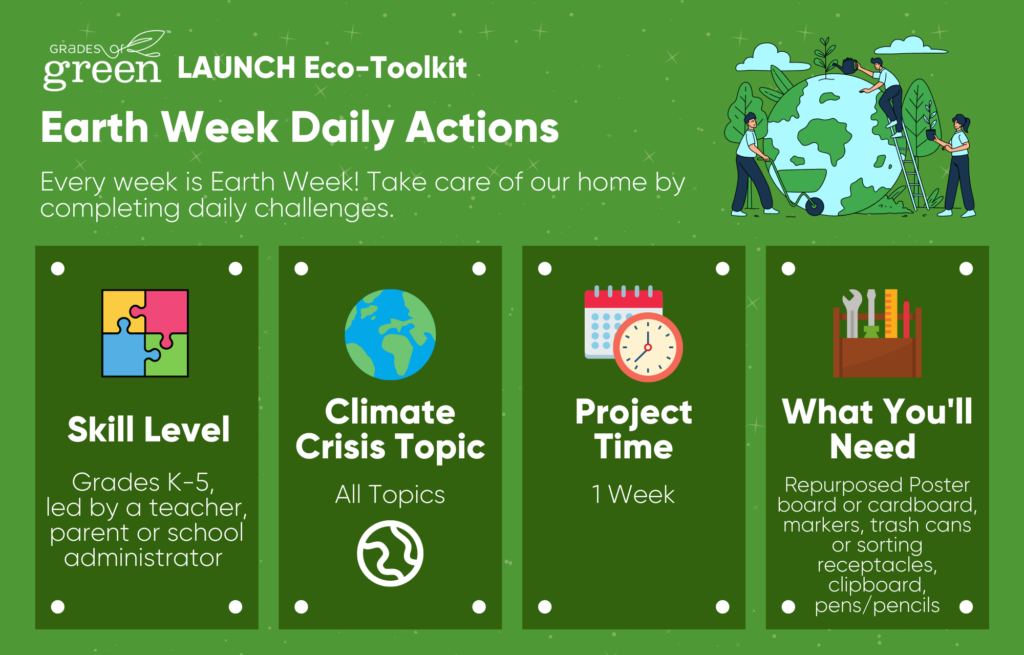The world is grappling with urgent environmental challenges, making it increasingly crucial for each individual to adopt sustainable practices in their daily lives. While the scale of these challenges may seem overwhelming, it’s essential to recognize that small changes can have a significant and positive impact on the environment. By adopting eco-friendly living habits, we can collectively bring about a revolution to safeguard our planet for current and future generations.
Eco-Friendly Habits at Home
Our homes are the perfect starting point for embracing eco-friendly habits. By making simple changes, we can significantly reduce our carbon footprint and contribute to a healthier planet.
Switch to LED light bulbs: Traditional incandescent light bulbs are not only less energy-efficient but also have a shorter lifespan. By making the switch to LED bulbs, we can reduce energy consumption and enjoy longer-lasting lights. LED bulbs use up to 80% less energy and can last up to 25 times longer than incandescent bulbs.
Utilize natural lighting: Make the most of natural light during the day by keeping curtains and blinds open. This not only helps reduce the need for electric lights but also provides a refreshing ambiance to your living space. Embrace natural lighting and let the sun brighten up your home.
Reduce water wastage: Water is a valuable resource, and by implementing water-saving measures, we can conserve this precious element. Consider installing low-flow showerheads and faucets, as they can significantly reduce water usage without compromising your daily routine. Fixing leaks promptly and using water-efficient appliances like dishwashers and washing machines can also make a substantial difference.
Sustainable Consumption Habits
Our consumption patterns play a crucial role in determining the health of the environment. By adopting sustainable consumption habits, we can minimize waste, protect natural resources, and support a circular economy.
Adopt a minimalist lifestyle: Decluttering our lives not only helps create a peaceful environment but also reduces the demand for new products. Embrace minimalism by consciously assessing the items you own and decluttering items that no longer serve a purpose. This practice fosters mindful consumption and reduces waste in the long run.
Embrace reusable alternatives: Single-use plastics contribute significantly to pollution and harm marine life. By replacing disposable items with reusable alternatives, such as shopping bags, water bottles, and food containers, we can dramatically reduce our plastic consumption. These small changes can have a significant positive impact on the environment over time.
Choose sustainable materials: When purchasing clothing, furniture, or household items, opt for sustainable materials. Look for products made from natural fibers, such as organic cotton or linen, as they have a lower environmental impact compared to synthetic alternatives. Additionally, consider supporting brands that prioritize recycled materials, upcycling, and sustainable sourcing.
Switch to LED light bulbs: Traditional incandescent light bulbs are not only less energy-efficient but also have a shorter lifespan. By making the switch to LED bulbs, we can reduce energy consumption and enjoy longer-lasting lights. LED bulbs use up to 80% less energy and can last up to 25 times longer than incandescent bulbs.
Utilize natural lighting: Make the most of natural light during the day by keeping curtains and blinds open. This not only helps reduce the need for electric lights but also provides a refreshing ambiance to your living space. Embrace natural lighting and let the sun brighten up your home.
Reduce water wastage: Water is a valuable resource, and by implementing water-saving measures, we can conserve this precious element. Consider installing low-flow showerheads and faucets, as they can significantly reduce water usage without compromising your daily routine. Fixing leaks promptly and using water-efficient appliances like dishwashers and washing machines can also make a substantial difference.
Eco-Friendly Transportation and Travel
Transportation and travel contribute significantly to greenhouse gas emissions. By making conscious choices when it comes to commuting and exploring the world, we can minimize our carbon footprint and embrace eco-friendly alternatives.

Image courtesy of gradesofgreen.org via Google Images
Opt for greener commuting: Ditching the car in favor of public transportation, carpooling, walking, or biking can significantly reduce carbon emissions. Not only does this contribute to a cleaner environment, but it may also lead to cost savings, improved fitness, and reduced traffic congestion. Explore the available options and choose greener alternatives whenever possible.
Emphasize the value of electric vehicles: Electric vehicles (EVs) are a sustainable transportation solution that reduces pollution and dependency on fossil fuels. With advancements in technology, EVs are becoming more accessible and affordable. Consider transitioning to an electric vehicle and contribute to a cleaner, greener future.
Sustainable travel practices: When planning your travel adventures, prioritize destinations that actively promote sustainability and responsible tourism. Support local communities, choose accommodations with eco-friendly certifications, and engage in activities that have a minimal impact on the environment. Additionally, consider offsetting your carbon emissions by supporting reforestation projects or investing in carbon offset programs.
Sustainable Food Choices
Food production and consumption have significant environmental implications. By making sustainable food choices, we can reduce greenhouse gas emissions, conserve water, protect biodiversity, and support ethical farming practices.
Promote plant-based meals: Reducing meat consumption is one of the most impactful changes an individual can make. Incorporating more vegetarian or vegan meals into your diet significantly reduces the environmental burden associated with animal agriculture. Explore delicious plant-based recipes and try incorporating them into your weekly menu.
Encourage home gardening: Growing your food, even in small spaces, can be a rewarding experience. Consider starting a kitchen garden with herbs, vegetables, or even small fruit trees. Home gardening not only provides fresh produce but also connects you to nature and reduces the carbon footprint associated with conventional agriculture.
Support local and organic produce: When purchasing groceries, prioritize locally sourced and organic produce. By supporting local farmers, you reduce the carbon emissions associated with long-distance transportation and help maintain the integrity of local ecosystems. Organic farming practices minimize the use of harmful chemicals and promote soil health, safeguarding both the environment and our well-being.
Concluding Thoughts
Incorporating eco-friendly practices into our daily lives may seem daunting, but every small change we make adds up to create a significant impact on the environment. By adopting sustainable habits at home, embracing mindful consumption, making eco-friendly choices in transportation and travel, and opting for sustainable food practices, we can revolutionize the world. Remember, the choices we make today will pave the way for a greener and more sustainable tomorrow for generations to come.



